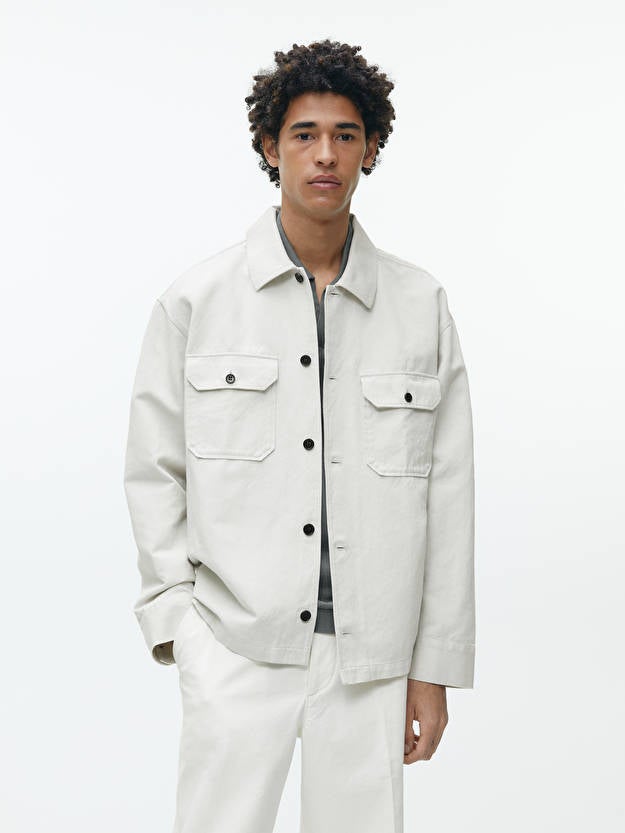
The Arket cellulose-based Spinnova fibre overshirt for men will be available to consumers in stores and online this month and marks the first H&M Group brand to sell a Spinnova product.
It launches two months after Spinnova launched its first global commercial product with Adidas and signifies the start of the company’s wider vision to work with global fashion brands and retailers.
Its first commercial-scale factory in partnership with Suzano, is due to be completed in Finland by the end of 2022. It will allow Spinnova to scale its production to one million tonnes of sustainable fibre annually within the next 10 to 12 years. The aim is to provide global fashion brands and retailers with a versatile and sustainable fibre at scale.
Spinnova’s CEO and co-founder Janne Poranen explains the company is on a mission to transform the raw material base of the global textile industry by providing radically sustainable and high-performance textile materials.
He says: “Seeing Arket use Spinnova in their signature, timeless design makes us very proud of this collaboration.”
The company’s new overshirt partnership with Arket features 18% Spinnova fibre and 82% sustainably sourced cotton.
Arket’s managing director Pernilla Wohlfahrt adds it is important for Arket to source new materials so the company is proud to adopt the fibre into its selective material portfolio.
Spinnova is described as a textile fibre made of sustainably sourced wood without harmful chemicals. It is said to produce fewer CO2 emissions and use 99% less water than conventional cotton production and contains zero microplastics.



